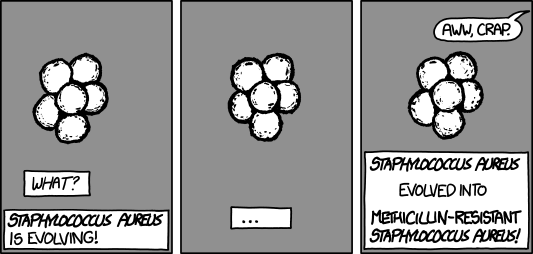Difference between revisions of "Team:IIT Madras"
Venkat1994 (Talk | contribs) |
|||
| (46 intermediate revisions by 4 users not shown) | |||
| Line 1: | Line 1: | ||
{{IIT_Madras}} | {{IIT_Madras}} | ||
| − | |||
| − | <div style="text-align: center;"><img height=" | + | <html> |
| + | <body> | ||
| + | <!-- | ||
| + | <div style="text-align: center;"><img height="400px" width="360px" src="https://static.igem.org/mediawiki/2015/thumb/3/37/Iitm_igem_bac_resis.jpeg/300px-Iitm_igem_bac_resis.jpeg"></div> | ||
| + | --> | ||
| + | <!-- | ||
| + | <h2 align="center"><font size="5" color="green"><b>Simulating Evolution</b></font><br></br><font size="3" color="green">to</font></h2> | ||
| + | <h2 align="center"><font size="5" color="green"><b>Tackle Antibiotic Resistance</b></font></h2> | ||
| + | --> | ||
| + | <div style="text-align: center;"> | ||
| + | <img height="400px" width="400px" src="https://static.igem.org/mediawiki/2015/9/9d/Black%26WhiteiGEMlogo1.png"> | ||
| + | </div> | ||
<!--<div id="cf"> | <!--<div id="cf"> | ||
<img class="bottom" width="500px" src="https://static.igem.org/mediawiki/2015/0/03/Evolving.png" /> | <img class="bottom" width="500px" src="https://static.igem.org/mediawiki/2015/0/03/Evolving.png" /> | ||
| Line 8: | Line 18: | ||
</div>--> | </div>--> | ||
| − | + | <p>Hello! We're the iGEM 2015 team from IIT Madras, India. Welcome to our wiki page. We are trying to develop a system that can tackle the problem of antibiotic resistance. Read on to learn more!</p> | |
| − | <p> | + | <br> |
| − | + | <p> Antimicrobial agents like antibiotics and other drugs have served us well for over 70 years. However, they have been used so widely and for so long that the microbes that were supposed to be killed by the antibiotics have adapted to them! Antimicrobial resistance is a serious issue today, and could grow to become even worse in the future. A WHO report in April 2014 states that:</p> | |
| − | to antibiotics | + | |
| − | <p> | + | <p class="highlightBox">"this serious threat is no longer a prediction for the future, it is happening right now in every region of the world and has the potential to affect anyone, of any age, in any country. Antibiotic resistance—when bacteria change so antibiotics no longer work in people who need them to treat infections—is now a major threat to public health."</p> |
| − | + | ||
| − | + | ||
| − | + | ||
| − | <p></p> | + | <p>Our iGEM project aims to tackle the emerging problem of antibiotic resistance by leveraging the power of evolution and natural selection under selective pressure, and synthetic biology. |
| + | </p> | ||
| − | < | + | <br></br> |
| − | |||
| − | < | + | <div style="text-align: center;"><img src="https://imgs.xkcd.com/comics/evolving.png"></div> |
| − | < | + | <br> |
| − | < | + | <figcaption>This xkcd comic depicts the "evolution" of bacteria as observed by a Biologist <br> like in the game Pokémon. |
| − | < | + | <a href="https://xkcd.com/1147/"> <i>Link to comic webpage</i></a></figcaption> |
| − | < | + | |
| − | + | ||
| − | + | ||
| − | </ | + | |
| − | |||
| − | |||
| − | |||
| − | |||
| − | |||
| − | |||
| − | |||
| − | |||
| − | |||
| − | |||
| − | |||
| − | |||
| − | |||
| − | |||
| − | |||
| − | |||
| − | |||
| − | |||
| − | |||
| − | |||
</div> <!--This is the closing tag for content container --> | </div> <!--This is the closing tag for content container --> | ||
| Line 61: | Line 43: | ||
</body> | </body> | ||
</html> | </html> | ||
| + | |||
| + | {{Team:IIT_Madras_Footer_Final}} | ||
Latest revision as of 22:58, 18 September 2015

Hello! We're the iGEM 2015 team from IIT Madras, India. Welcome to our wiki page. We are trying to develop a system that can tackle the problem of antibiotic resistance. Read on to learn more!
Antimicrobial agents like antibiotics and other drugs have served us well for over 70 years. However, they have been used so widely and for so long that the microbes that were supposed to be killed by the antibiotics have adapted to them! Antimicrobial resistance is a serious issue today, and could grow to become even worse in the future. A WHO report in April 2014 states that:
"this serious threat is no longer a prediction for the future, it is happening right now in every region of the world and has the potential to affect anyone, of any age, in any country. Antibiotic resistance—when bacteria change so antibiotics no longer work in people who need them to treat infections—is now a major threat to public health."
Our iGEM project aims to tackle the emerging problem of antibiotic resistance by leveraging the power of evolution and natural selection under selective pressure, and synthetic biology.

like in the game Pokémon. Link to comic webpage
About Us
We are a team of undergraduates from the Department of Biotechnology, IIT Madras in iGEM 2015
Follow us on
Location
Department of Biotechnology, IIT Madras Sardar Patel Road, Chennai
Pincode : 600036
Contact Us
Email: igemiitm2015@gmail.com
Tel: +04422574128


